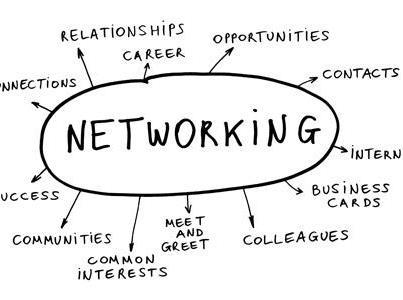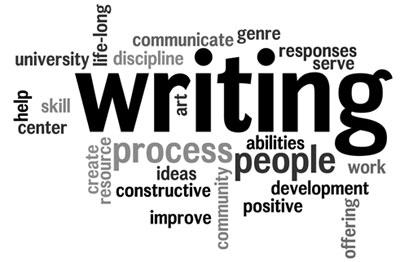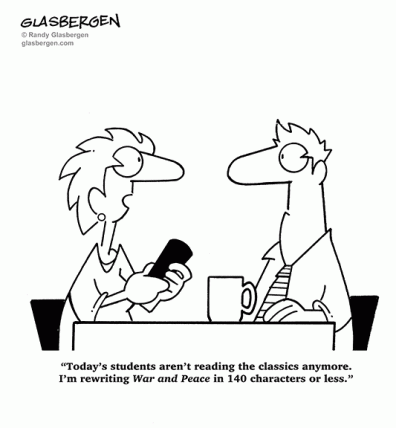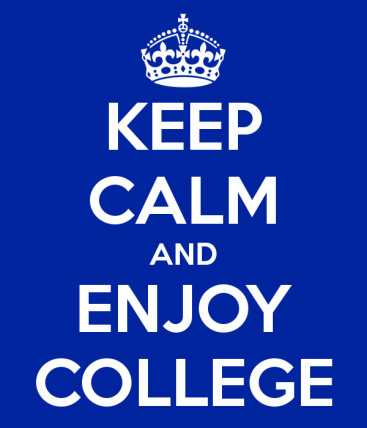We recently asked our Slavic Department alumni what advice they would give our current students about making the most of their time at UW and on finding a job after graduation. A total of 28 alumni responded, sharing approximately 61 pages of incredibly thoughtful suggestions and detailed stories about their experiences during and after college. Below are their top eight pieces of advice for current majors, complete with quotes explaining why you should follow these tips.
1. Study abroad
All of our alumni made this recommendation! Studying abroad will vastly improve your language acquisition and retention. It will also make you more attractive to employers or graduate schools that are looking for candidates with international experience and the ability to adapt to challenging and novel situations. Do we even need to mention how cool it is to watch the sunset in St. Petersburg? Discuss politics with a Croatian friend in a café in Dubrovnik? Seriously, what are you waiting for?
Our faculty recommends that you study abroad after completing your third year of Russian or your second year of one our Eastern European languages. Summer and Autumn quarters are the best times to go abroad, but full-year or Winter/Spring programs are also available. More information about the programs most popular among UW Slavic students is available here: http://slavic.washington.edu/study-abroad.
Remember, you must plan your study abroad through the UW International Programs and Exchanges (IPE) office in order for your financial aid to transfer and to ensure that your credits will count toward your UW degree. For more information, visit the IPE webpage.
“Study or work abroad programs that provide you with in-country experience are more highly valued by employers than coursework alone. These experiences allow students to develop greater cultural insights, cross-cultural communication skills, practical skills and other useful knowledge in navigating the country and culture. These can be great assets in the job market, as they are hard to come by.”
“I think study abroad is a really, really good idea. It’s the only way most people can break out of a beginner's level of proficiency no matter how many classes they take. I studied abroad for 3 months and it really helped me with my language proficiency.”
“Even for jobs that have nothing to do with Russia or Russian language, my time spent abroad makes my resume stand out. Every potential employer is different, but I really believe that many employers will look at time spent studying abroad as evidence that a job candidate is a fun, interesting person with initiative, a worldly perspective and the courage to go outside of his or her comfort zone.”
2. Practice your language outside of the classroom
You don’t have to go abroad to extend your learning outside of the classroom! Our alumni recommended that you attend Russian Table, Russian film club, Slavic community events in Seattle, and find other ways to use your language outside of the classroom. More information about upcoming events and opportunities that will immerse you in Slavic languages in Seattle is available on our departmental webpage and our Facebook page (like us today!).
“Employers looking for speakers of foreign languages don't want people who can read newspapers; they want people who can carry on a full-speed conversation and sound intelligent while doing it. You can get a 4.0 in class and still not be able to converse comfortably and quickly. Go to Russian Table, volunteer for an organization that serves Slavic-speaking immigrants in Seattle, get together with your classmates and speak Russian over dinner. Find ways to use the language in practical settings, not just academic ones.”
3. Network, network, network

When it comes to finding a job, whom you know is often just as critical as what you know! This is especially true if you want to find a position that will allow you to use your skills as a student of Slavic languages, literature, and culture. Start building your social network early and be as gregarious as possible. Attend on-campus lectures and conferences, go to faculty office hours, introduce yourself to members of the Slavic community in Seattle, attend career center workshops, and schedule a coffee date with an alumnus who has a job that interests you. We have a list of department alumni who are willing to meet/talk with current students. Ask us for a “match” today!
“Network. All of the jobs I've had, or my husband has had, we have gotten because of people we knew. Get to know people in the fields that interest you, and carry your resume/CV just in case. You never know when it may come in handy.”
“Making connections with alumni can be extremely valuable in terms of future job opportunities. Alumni can become references and advocates for you. I'm not talking entirely about meeting people at events, but more about match-making. Ask your adviser to connect you with someone who does something that interests you or is living in a city you plan to visit. Your adviser asks if you can have coffee with me while you’re in San Diego. I say yes, we have coffee, and then you have an advocate when you’re job-seeking. I truly believe that any and perhaps all alumni would be happy to meet current students and help them accomplish their goals!”
“Go to talks that seem even a little interesting--partly just to see people and have them see you. Go to faculty office hours and talk about your interests. Attend social events. Get involved in or help start an on-campus club or student organization. Take advantage of career services on campus. Do these things as early as possible. Don't wait until your last quarter to begin networking and exploring career paths and your interests.”
“Study is both an end in itself and a gateway to various networks. Participate to whatever extent possible in conferences and symposia. Use your language and cultural understanding as a way to get involved locally with immigrant communities in one way or another.”
4. Pursue independent study, research, or an internship

If you have a high GPA, you may be eligible for our departmental honors program, but this is not the only way to do independent research! You can talk to a faculty member about taking SLAV or RUSS 499 credits to research something that interests you. If you are eligible for a work-study position, contact the Language Learning Center to ask about open positions.
Advisers with the UW Undergraduate Research Program (URP) also keep a database of local research opportunities in many fields. Check out the URP website today to get started! Or follow the URP Blog!
Internships and volunteer opportunities also give you the opportunity to practice reading, writing, and communicating in a work environment. This kind of practical experience can unlock many job opportunities. Visit the UW Career Center website today to search their list of internship opportunities.
“I wrote a thesis for the Department of Political Science that drew on my understanding of culture in Russia and elsewhere. This research helped me gain admittance to a master’s program at Georgetown University. The ability to conduct research and produce coherent writing on any subject is essential to analytical positions of all kinds. It certainly helps to have a physical object - such as a publication - that demonstrates competency, commitment, and the ability to complete an intellectual project. Pursue research projects, independently or in groups, and publish the results!”
“Intern, but ensure that you are using your time wisely and learning every minute. The name of the institution where you intern matters much less than what you actually do.”
“Be open to interning or volunteering your time for an organization that may not be hiring (especially in the non-profit sector). Join member organizations like Global Washington and the World Affairs Council's Young Professionals International Network, and attend conferences and events to gain skills and to network with professionals. The more people you know, the more opportunities you will find. Don't be afraid to ask for informational interviews at organizations that interest you.”
“All the research skills you gained in college will come in handy for the rest of your life.”
5. Practice writing for many audiences

Our alumni agreed that, in addition to language proficiency, their writing skills have been a strong asset on the job market. Slavic Department classes provide many opportunities to practice writing, but challenge yourself to develop these skills even further by doing one or more of the following:
Submit to an academic journal or literary magazine.
Getting published can be much less intimidating than it seems! Recently, one of our majors had a photograph published in Troika, an undergraduate journal based on the UC Berkeley campus. Ask a faculty member for help revising a course paper or transforming your research results in to a publishable manuscript!
Start a blog, submit articles for our newsletter, or write opinion pieces for a local newspaper.
Translate Russian-language news articles, tell the story of your experiences studying abroad, show off your knowledge of foreign affairs. Write about anything that interests you and share your work with the world.
“Whether I’m working on correspondence, a presentation, or an article, the ability to write well is the single most important skill I gained from my degree.”
6. Read the classics (preferably in the original language)

All of that time spent reading Tolstoy, Dostoevsky, Chekhov, etc., not only prepares you for titillating class discussion, it may actually make you a better person. No kidding! A recent study published in Science suggests that study participants who read literature performed better on tests measuring empathy, social perception and emotional intelligence. Read more in the New York Times Wellness Blog. Reading the classics is also an invaluable form of cultural immersion that will improve your communication skills.
“I read a lot of literature in the original, including Ilf and Petrov's classic works of satire as well as the usual collection of Tolstoy and other 19th century writers. Since Russians make literary allusions more or less constantly (at least among the intelligentsia), this made it much easier both to communicate and to be accepted by native Russians. Being able to quote Panikovskiy and Ostap Bender from "Zolotoy telenok" goes a long way.”
“Any well-educated person should have read, and discussed, the great works of Russian literature - truly a broadening experience in addition to wonderful reading. Delve into Russian literature to understand more about what has influenced the Russian way of thinking (to the extent that generalizations can be made)."
“Reading Dostoevsky and Tolstoy gave me an enhanced understanding of the complexity of the human psyche, including the parts usually hidden from the view of conventional society.”
7. Round out your skillset

Make the most out of the 180 credits that will eventually constitute your UW degree. Now is the time to explore your many interests and prepare yourself for a career after graduation. If you have a strong interest in another discipline, consider a minor or double major in something that complements your Slavic major. Perennial alumni favorites include International Studies, Linguistics, Political Science, and Anthropology, and we have had many dual degree candidates who also pursued their love of Math, Physics, or Engineering. A double major or dual degree is not necessary for success, but it may help you prepare for multiple career paths or knock out prerequisites for a professional/graduate degree program that interests you. Also, choose your general education requirements wisely and embrace the opportunities for self-discovery that come with a liberal arts degree! Research your options and choose area of knowledge classes that really interest you with faculty who will stretch your thinking (rather than choosing classes just to get the requirement “out of the way”). Challenge yourself to step out of your academic comfort zone! You never know where and when inspiration will strike…
“Pick up a second skill at the same time. My jobs all came because I had a second skill that augmented the Russian language fluency. In my case it was agricultural economics, and Russian-speaking agricultural economists are relatively rare. The combination is what made me attractive enough to hire in the first place.”
8. Savor this time!!!

Our alumni waxed poetic about how much they enjoyed their time at UW. Make sure that you remember to pause every now and again and appreciate this opportunity to learn a new language, read Russian and Eastern European classics and watch films with faculty who are at the top of their field, and be around students and staff who share your interests in Slavic languages, literatures, and culture. Remember to stop and smell the blini.
“Enjoy this time! Even in the most fabulous career, you rarely get the opportunity to study what you want. If you want to be the foremost expert on Georgian cinema, or bring the best of new Russian-language literature to the English-speaking world, or advise the EU on integrating economic immigrants from new member states - do this work now. If you're going to be a scholar in this field, commit to it, and you may well end up getting paid to do what you love.”
“I wouldn't trade the experience for anything. It was a very good time in my life. I still love the Russian language to this day.”